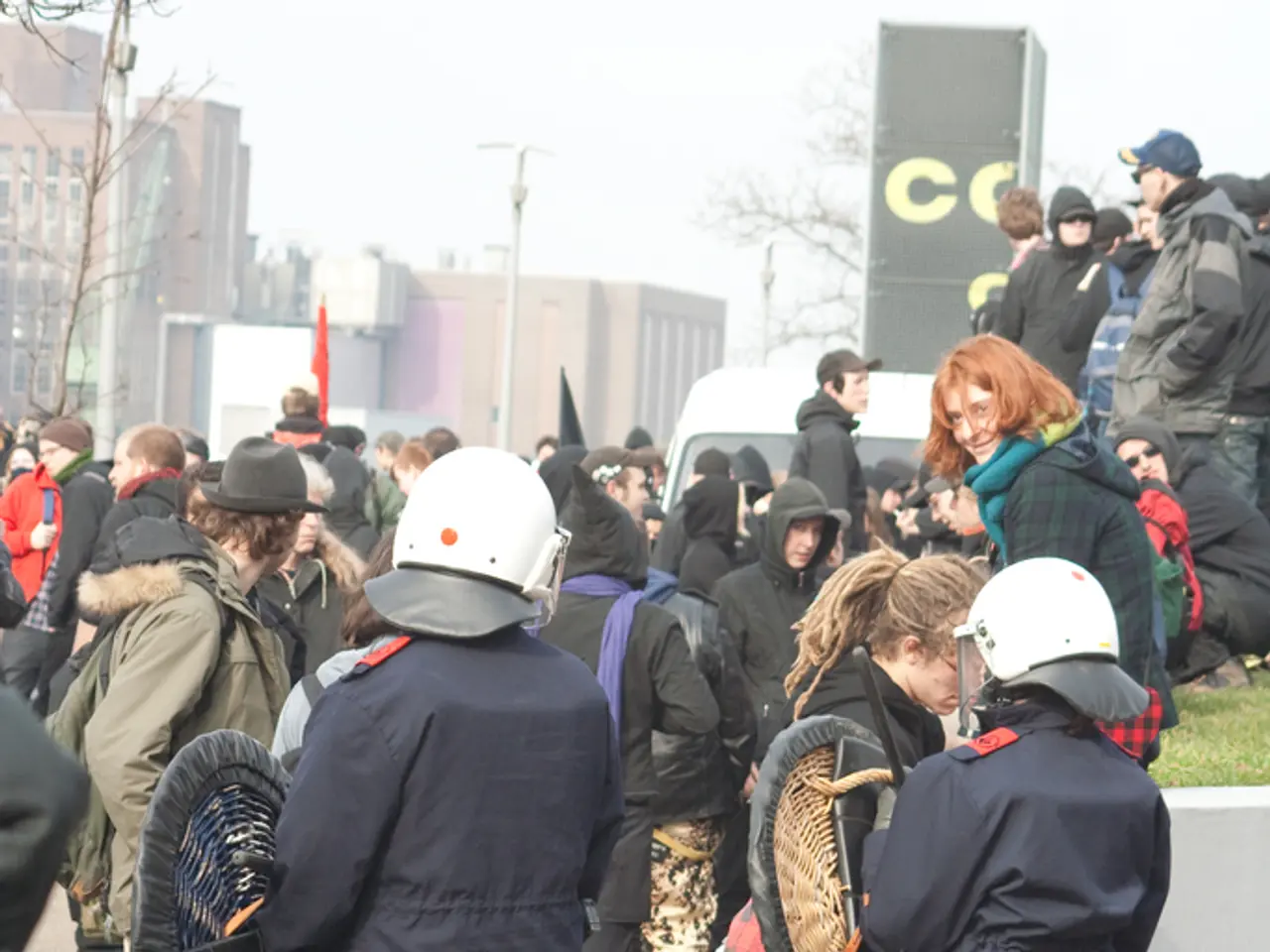escalation of criminal violence prompts Haiti to announce a state of emergency.
In a bid to stabilize the country and pave the way for democratic elections in November, Haiti's transitional government has declared a three-month state of emergency. This measure is aimed at addressing the ongoing gang-related violence that has been plaguing the nation, particularly in the capital Port-au-Prince and other central regions like Ouest, Artibonite, and Centre.
The state of emergency was announced by the office of Prime Minister Alix Didier Fils-Aimé, who assumed office as part of the transitional government formed in June 2024. The council, consisting of nine members, has been leading the government since then. The new rotating president of the transitional presidential council is Laurent Saint-Cyr.
The declaration comes in response to the growing crisis in Haiti, where violent gangs control at least 80 percent of the territory. Between April and June 2025 alone, over 1,520 people were killed and 609 injured in gang-related violence. Kidnappings, sexual violence, and recruitment of children into gangs have contributed significantly to this crisis, with approximately 1.3 million people internally displaced due to gang violence, half of them children.
The most powerful gang coalition, Viv Ansanm, formed in September 2023, has escalated criminal activity, including raids on major prisons and shutting down the main international airport for months. This federation, with significant military capacity, continues to control extensive territory, threatening civilian populations and political stability.
In response, the Haitian government has struggled to contain the violence. While the government, alongside international actors, acknowledges the urgent need to strengthen anti-gang operations, challenges include insufficient security personnel and risks that intensified crackdowns might escalate conflict rather than resolve it.
Recommendations from UN missions highlight the need for the government to accelerate the establishment of specialized judicial units focused on gang-related crimes, continue vetting and professionalizing the national police, protect civilians from gang abuses, and address arms trafficking that fuels the gangs. The international community is also urged to fully deploy the Multinational Security Support Mission to back Haiti's security forces.
The ongoing gang-related violence has significantly impacted the lives of citizens and various economic sectors in Haiti. The state of emergency aims to enable a comprehensive mobilization of the state's resources to restore security and peace. The aim is to stabilize the country and pave the way for democratic elections in November.
The declaration of the state of emergency follows the assassination of then-president Jovenel Moïse in 2021, which did not lead to the resumption of elections in Haiti. Despite the formation of the transitional government, the security situation in Haiti has continued to deteriorate.
A new chief of the National Police has been appointed as part of the government's efforts to strengthen its security forces. The government's response remains inadequate to reverse the gang-dominated insecurity, which has evolved into a complex political-criminal crisis involving corruption and the manipulation of state systems by organized crime, rather than merely being a law enforcement problem. This complexity requires a coordinated political, social, and humanitarian strategy alongside strengthened security measures.
[1] https://www.reuters.com/world/americas/haiti-declares-state-emergency-amid-gang-violence-2025-07-01 [2] https://www.aljazeera.com/news/2025/7/1/haiti-declares-state-of-emergency-amid-spike-in-gang-violence [3] https://www.bbc.com/news/world-latin-america-61145367 [4] https://www.un.org/en/press/releases/2025/07/20250701_haiti-security-situation-requires-comprehensive-approach.html
- Amidst the ongoing crisis characterized by gang-related violence, the government's declaration of a three-month state of emergency aims to expedite the restoration of security and peace in Haiti, paving the way for democratic elections in November.
- Given the political instability caused by violent gangs controlling at least 80% of Haiti's territory, international involvement, such as the full deployment of the Multinational Security Support Mission, is crucial to support Haiti's security forces and address this complex political-criminal crisis.




